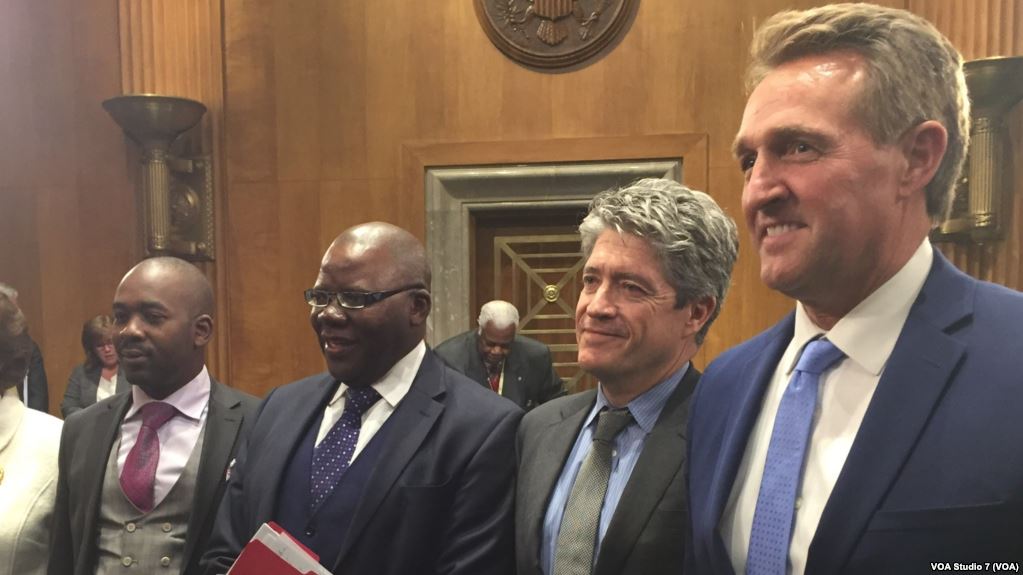by Peacemaker Zano
Illegal economic sanctions imposed on any developing nation have major negative ripple effects that affect economic growth and can mean dire consequences for the ordinary citizens.
It is unfortunate that the sanctions that were imposed on Zimbabwe by the US were illegal and ill-advised by a naïve and selfish opposition that wanted to use (and still want to use) Zimbabweans as pawns in a political game.
A few days ago, the United States of America (US) renewed illegal sanctions against Zimbabwe. This was done through the signing into law the amended Zimbabwe Democracy and Economic Recovery Act (ZIDERA) by US President Donald Trump. The Bill, which was signed into law, was passed by the United States Congress in July this year, and set tough conditions for Zimbabwe to re-engage with the US.
Signing of the amended ZIDERA by the US President against Zimbabwe depicts that the US Government has a nefarious agenda that it intends to score against the current administration. Had it been that the US really cares about Zimbabwe and its economic development projects, it could have given the new dispensation under the leadership of President Mnangagwa time to prove its sincerity in steering the country in a new direction.
It is worthy to note that these sanctions are meant to create tension between the public and the Government, which may lead to protests and instability. It should also be noted that this strategy has failed in the past two decades and what guarantee does the Trump administration have that this time, this approach will yield their intended outcome to overthrow a democratically elected government.
The MDC Alliance leadership including Nelson Chamisa, Tendai Biti and human rights activist Dewa Mavhinga went to US late last year where they called for more sanctions to be imposed on Zimbabwe if their party did not win the elections.
While in US, Mavhinga who represented the Human Rights Watch begged US Senate Committee to maintain sanctions on Zimbabwe and nonsensically claimed that there was gross human rights abuse by security forces. On the other hand, the MDC Alliance leadership imprudently thought that by continuously calling for sanctions against Zimbabwe, they will be cementing their relationship with the western community. Regrettably, the sanctions that are used to score certain agendas affect the laity.
It is indeed worrisome that after all is said and done, the burden still remains on the ordinary man as he continues to suffer most as a victim of MDC skewed political game.
Recently, President Mnangagwa met with US Ambassador to Zimbabwe Mr Brian Nichols and clearly denounced the decision that was taken by the US Government of renewing sanctions. The President said the US, through Mr Nichols should have an informed appreciation of the political developments in the country. Since President Mnangagwa assumed office in November last year, the country registered positive developments in both political and economic environment, and as such the US Government should have noted such progressive changes.
The US Government is known for imposing unnecessary sanctions on any country that it feels may be going against its wishes. Recently, it imposed sanctions on three foreign companies based in China, Russia and Singapore after it alleged these were helping North Korea with illicit shipments of goods to fund its nuclear programme.
The MDC Alliance leadership must be encouraged to go back to the drawing board and consider lobbying for the removal of these unnecessary sanctions which they called for which are crippling Zimbabwe.
The country needs to move on and catch up with other countries in the region for the betterment of its citizens.
Sanctions are certainly a hindrance to development.




